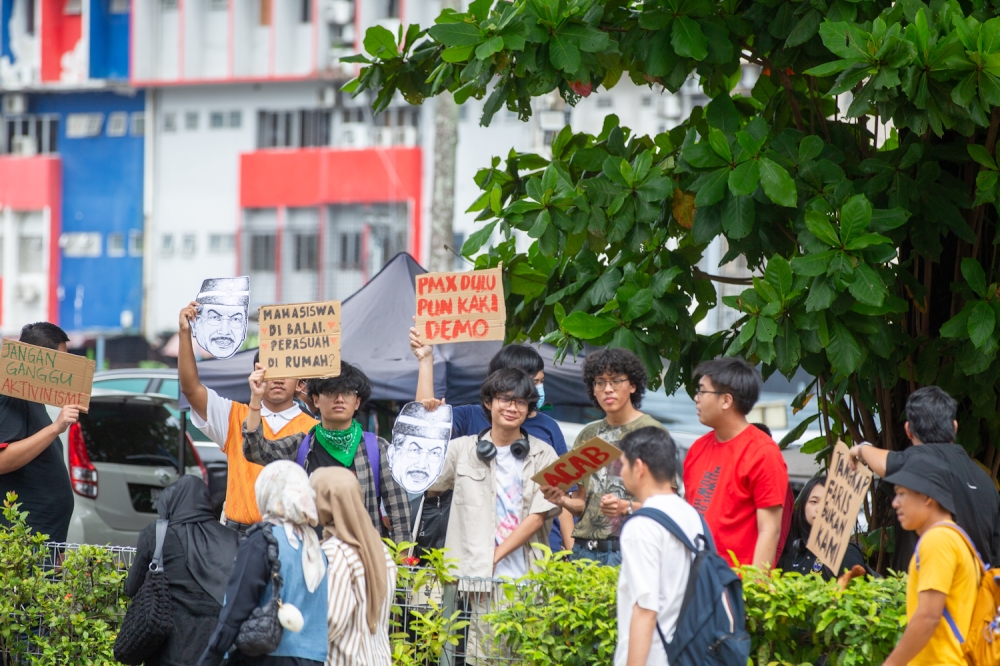FEBRUARY 3 — Where there is no law there is no freedom. So wrote John Locke in 1689.
According to the English philosopher, whose works lie at the foundation of modern philosophical empiricism and political liberalism, classical liberalism in particular, freedom “is not a liberty for every man to do what he lists”, but a liberty to do as the law allows. (See John Locke, Two treatises of government, p. 234)
How true.
In Malaysia, without the Chapter on Fundamental Liberties in the Federal Constitution, there would be no freedom, or the guarantee of it.
Even so, freedom is not absolute. Lord Denning called freedom as freedom under the law.

Students from Sekretariat Rakyat Benci Rasuah protest against their members who were called up by the police at Dang Wangi police headquarters. — Picture by Raymond Manuel
It is the law that will curtail freedom. Accordingly, the words “under the law” must be read into Article 10 of the Federal Constitution on freedom of speech, assembly and association.
Freedoms of speech, assembly and association are freedoms under the law, not freedoms from the law.
The organisers of the anti-corruption rally “Himpunan Rakyat Benci Rasuah” last weekend must reflect on this, in particular as to why they were “rewarded” with a police investigation under the Peaceful Assembly Act 2012 when they were merely taking on their responsibility to spread awareness about anti-corruption efforts.
* This is the personal opinion of the writer or publication and does not necessarily represent the views of Malay Mail.







